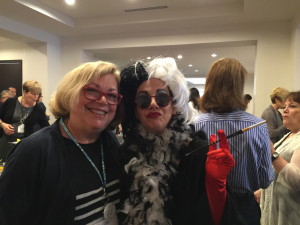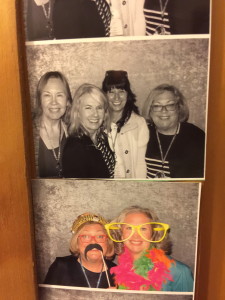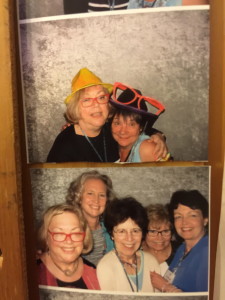Stuff 
I have stuff. I love my stuff. I admit to accumulating stuff.
OK. A moment of reality. I’m pretty sure that someday I’m going to die. And you probably will too. No, not now. Eventually. So there will be stuff in my apartment and odds are the cats won’t sort through it. I think about this every so often.
When I had my hip replaced some years ago, I spent a little time reflecting on my life (couldn’t do much else for a week or two) and I realized that I probably was no longer interested in putting up a Christmas tree and that the entire top shelf of one closet was devoted to Christmas tree ornaments and festive decorations. Hmm. When my cousin, who had two young sons, came to visit, I offered her anything and everything she wanted from this collection with a few exceptions. We spent a wonderful afternoon telling stories about the decorations, especially the ones I’d bought with her mother. She went home with two huge bins of ornaments and I gained an entire shelf in my closet. We were both very happy.
In contrast, another cousin and I were not so happy clearing out her parents’ home. They were not exactly hoarders, but they did keep a lot of stuff. Like back issues of magazines. And clothes. We were heartbroken to discover that vintage clothes and other potentially sellable items had been destroyed by an oil leak. And not too excited to throw out years of food and craft magazines along with a few projects her father never got around to completing – a Datsun rusting on the lawn and a partially restored organ. Similarly, a friend spent a month clearing out her sister’s apartment.
So what does this mean for me?
George Carlin said something about your stuff being someone else’s trash (cleaned it up a tad). No, your kids probably don’t want your Hitchcock chairs or the family silver or even your favorite china figurines. It’s simply not their taste. Ask. Confirm. Get over it.
Planning and Disposing – A short List
Make a will and a plan
- Please. Even if you think you don’t need one. And name an executor. It’s impossible to sell your car or deal with bank accounts if there isn’t an executor. Yes, you’re going to live to 110, but you’ll be too busy doing the tango to want to be bothered with this stuff. Make a plan now. Here are some ideas to get you started.
- Give things that you don’t use away now. I had my great grandmother’s gold watch. It was beautiful. I wore it maybe a half a dozen times over twenty years ago. I gave it to a cousin who also may never wear it but will appreciate it and pass it on to her daughter. I gave a niece my grandmother’s diamond ring and she turned it into a lovely pendant. I also gave her some antique coral beads because she enjoys chunky necklaces.
- Ask people what they might want of the things you’re ready to pass on. Send pictures before sending stuff. That saved me the trouble of sending my niece some lovely china plates that she didn’t like or lugging a bronze tea towel rack out to my cousin. It also gave me the satisfaction of seeing my great aunt’s inkwell every time I visit my cousin. Or knowing that another cousin has the family bible. I also got to sell some unloved gold jewelry with no regrets.
- Get rid of as much paper as possible. No one wants those articles you so painstakingly Xeroxed in college. Or old term papers, course outlines, work-related materials that are outdated. Or newspapers. Everything in those old recipe magazines that you really will cook can be found online or can be scanned into a file. This does NOT mean throwing away treasured old letters or cards. Store them neatly.
- Transfer everything you can to the Cloud. Set these files up as private. This makes it easy to share photos with the whole family but not the whole world. Get your old tapes converted to DVDs.
- Give away, donate, sell or throw away a lot of old books. I recently got rid of four shopping carts worth of books. Some I gave away to senior centers and shelters. Most neither thrift shops nor the library wanted. All my thirty year old research books and training books went into the trash.
- Label things. Never, never, never use indelible markers if you expect things to have a resale value. Instead, get a package or two of those round stickers and put them underneath or on the back of items. You get to enjoy your possessions now and someday someone will thank you for making it clear what goes to someone and what gets trashed.
- I love this option if you have a close family. It was the plot of a book I read decades ago. Leave instructions for everyone to come to your place (if you’re really nice, pre-arrange a little nosh) and have everyone given those dots I mentioned above. Each person gets to put their own color on items they want. If more than one person wants something, they work it out. In the book, they told stories about their memories related to the object. No fights, lots of bonding.
When?
This is a good thing to do when you’re bored. Or it’s raining. Or snowing. Work on this little by little. You’ll be glad you won’t have to think about his when you’re off having fun. And your family and friends will be delighted.









